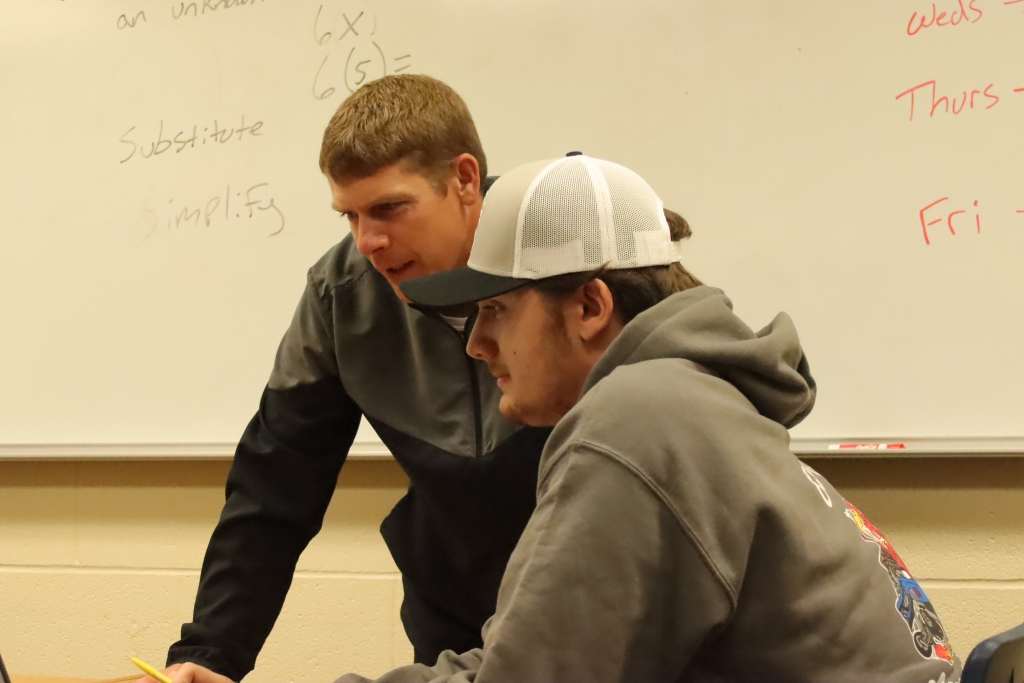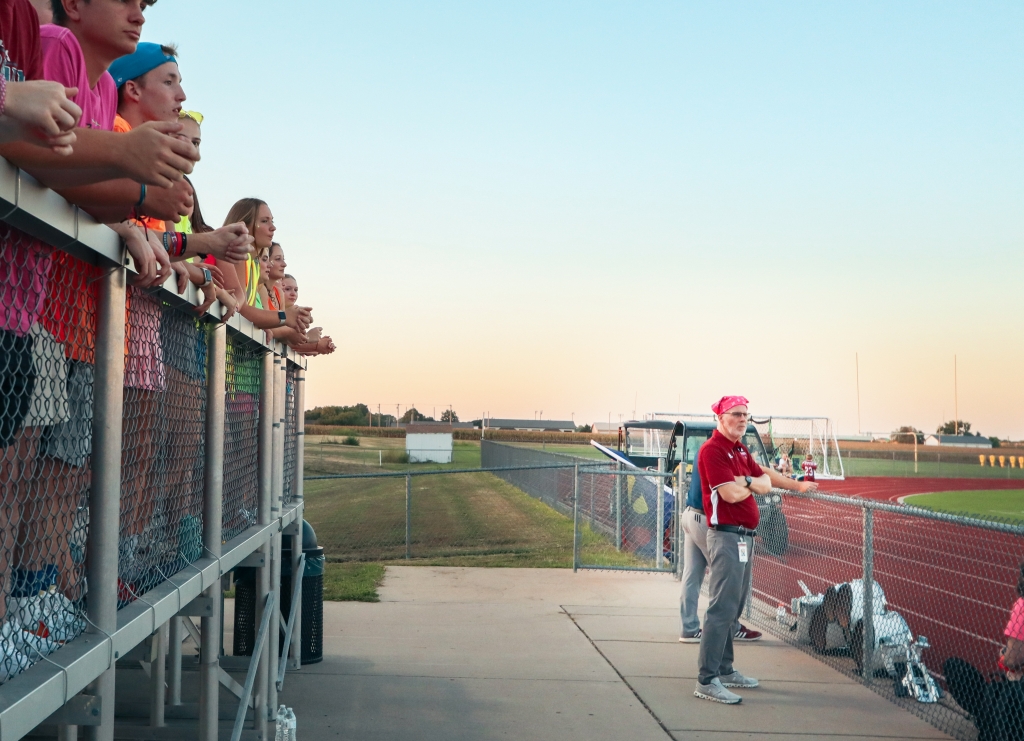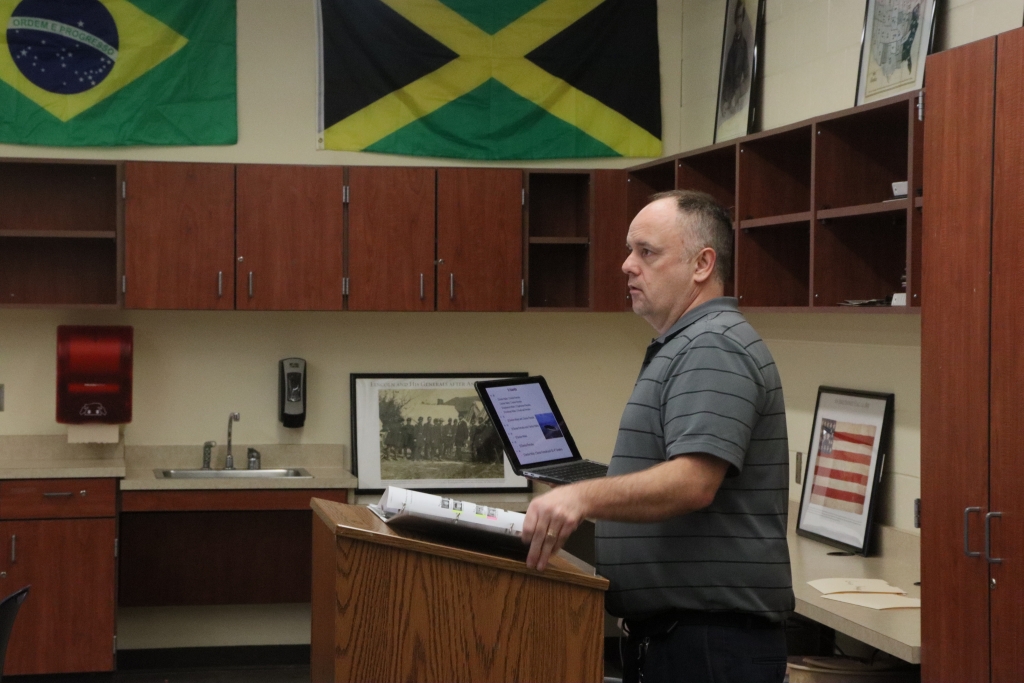Cheating to Win?
Story by Hunter Darling »
Last month, the Eudora Scholars Bowl team began competition in the regional meet, which would decide whether or not they would advance to state.
Just after the second round against Spring Hill had officially ended, Jon Bock, Sr, approached Assistant Coach Amanda Garrison about a situation that he had witnessed that he suspected was cheating.
“I saw the scorekeeper act like she knew the answer to the question and all of them looked. Since it came down to the last question that could be the difference between us making it to state or not,” said Bock.
Coach Theresa Abel could not challenge the procedures of the round, but the scorekeeper was asked to leave the room afterwards.
“As a coach, I cannot challenge something procedural after a round is over unless I am aware of it and before the scoresheet is signed,” Abel said, “We were told that they would go and ask that scorekeeper to leave.
But in spite of what Bock believed that he saw, the score sheet had already been signed by the team captain.
Spring Hill coach and host of the meet Stephanie Hojnacki categorically denies that what Bock saw was cheating.
“There was no cheating incident during the Regional Tournament,” Hojnack said, “There was an issue brought up after a round but there were contradicting reports. The incident was not formally challenged and was therefore handled according to Scholars Bowl Activity official rules.”
Bock believes that he saw the scorekeeper providing answers to the other team, but Abel is not so sure.
“I still really think that what I saw was not her giving answers. What I saw was that she was getting very excited,” Abel said, “I didn’t see [everything] he saw.”
Part of the problem may be the way that meets are organized. Bock thinks that preventing a host school from competing in Scholars Bowl competitions would prevent any similar situations from happening in the future.
“I know in the regular season you [generally] don’t compete in your own meet, but at [regionals] it’s at the school that participates at that regional.”
Misconduct and cheating is seen in many activities. Director of Bands and President of the Kansas Bandmasters Association, Damian Johnson has experienced a time when competition procedures and ambiguous rules fueled suspicions of cheating and misconduct
“Before we started doing live auditions I heard of different directors and lessons teachers recording auditions [in place of] for their students,” Johnson said.
He concludes that the best way to prevent foul-play in competition is to adjust rules and change regulations when issues come up.
“It wasn’t anything I heard or had confirmed,” Johnson said, “but changing to live auditions kind of confirmed my suspicions.”
Some cases of flat-out cheating cannot be prevented by changes in rules, like what Sydney Elmer, Sr., experienced during a culinary competition at Wichita University when ingredients came up missing.
“They have a check-in procedure and at some point, somebody took stuff off of our rack,” Elmer said. “ [The host school] were very upset, they gave us a time extension.”
For any organization, establishing clear rules and consistently enforcing them is the key to having a controversy-free competition.
At the Baldwin Cheer competition Junior Lindsey Nebel, was frustrated by what she saw as rampant disorganization.
“I think when people were scratching [officials] could have gotten confused, because they couldn’t change what was on the medals,” Nebel said, “Megan [Lauber] was signed up for jumps, she didn’t even go out there and she got a two. How did she get a two when she didn’t even do anything?”
Nebel also noticed illegal stunts that were performed without repercussions. Typically, judges and coaches are on the lookout for stunts that have been banned from competition.
“I thought that it was pretty unfair that last year we got pulled aside and they made us do [the routine] again to make sure we didn’t do anything illegal, and we didn’t,” Nebel said. “This year, they didn’t do it to anyones [routines].







